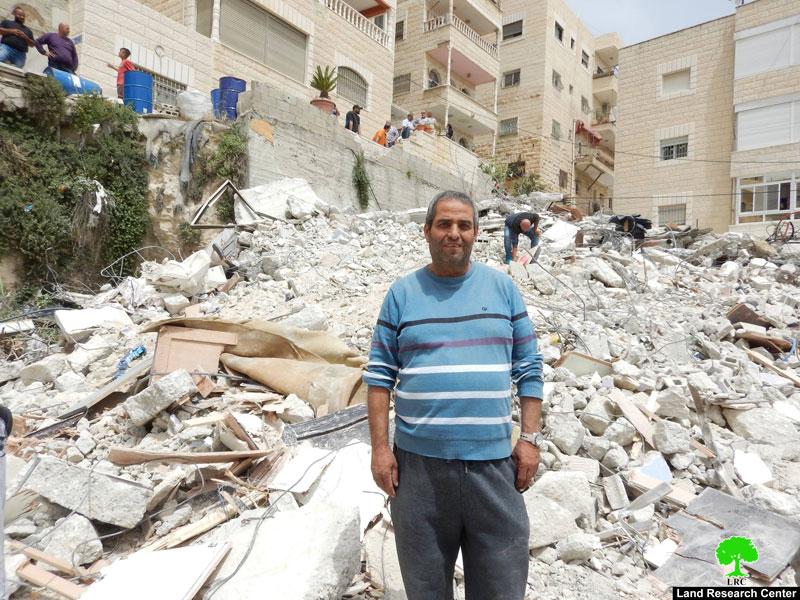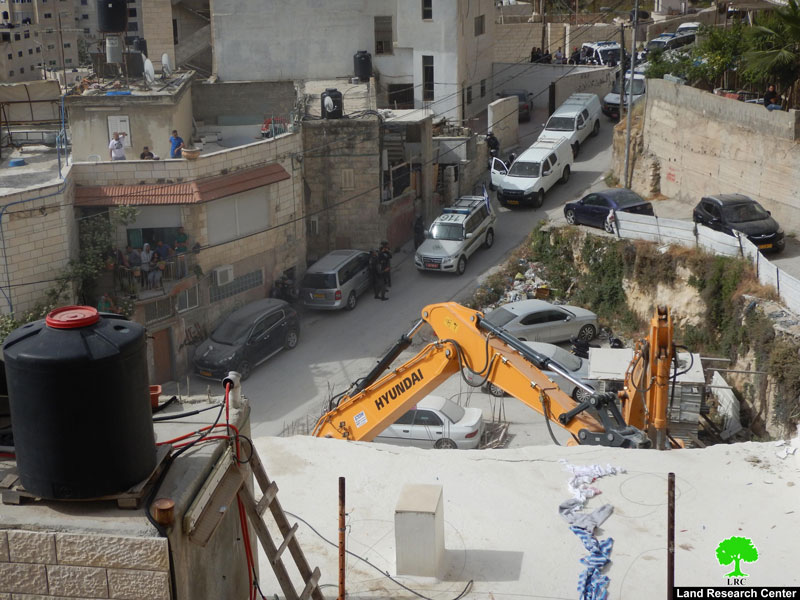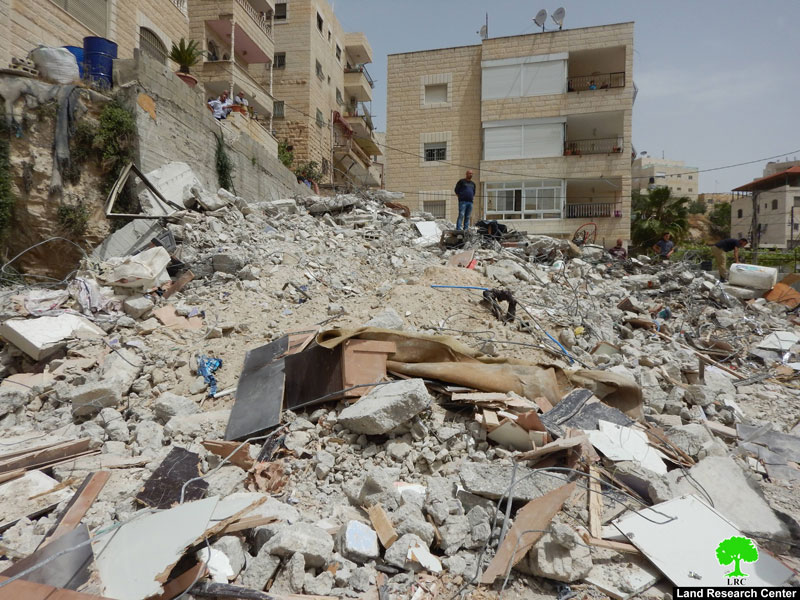2018-05-01
Israeli Occupation Forces demolish a building in the village of Isawiya
Israeli bulldozers demolished on May 01, 2018 a three story building belonging to Jamal Alayan in the village of Isawiya. The three floors are detailed as follows:
1. The first floor: it has three commercial stores with a total area of 200m2
2. The second floor: it has a 200m2 residential apartment (uninhabited)
3. The third floor: it has the apartment of citizen Jamal, where his eight member family including six children lives.
Wadi Hilweh Information Center said that members of the Special Forces, the police and border control, accompanied by municipal staff, stormed the village of Isawiya at dawn and were stationed at its main entrance. They surrounded the building of Jamal Alayan and closed the streets leading to it, after they smashed its main door and told him to evacuate it in order to execute the demolition.
The owner of the building Jamal Alayan said that the demolition was carried out without prior notice, and the municipal court imposed a few months ago a fine for "building without a license" worth 250 thousand shekels, and he was making the monthly payments, and trying to license the building.
He added that the building was built five years ago, and the municipality issued a decision to demolish it after two years of construction. The order was postponed and frozen several times until the imposition of the fine.
"The building is a three-story building, the first floor is commercial pizzeria , a storage, and Carpet Cleaning and Laundry," he said.



Land Research Center LRC sees that demolitions contradict with all of the International conventions and Humanitarian laws including:
- Article 17 of the (1948) Universal Declaration of Human Rights stating: “Everyone has the right to own property alone as well as in association with others. No one shall be arbitrarily deprived of his property.”
- Section ‹G› of article 23 of the (1907) The Hague Conventions asserting: “In addition to the prohibitions provided by special Conventions, it is especially forbidden to destroy or seize the enemy's property, unless such destruction or seizure be imperatively demanded by the necessities of war.”
- Article 53 of the Geneva Fourth Convention (1948) declaring: “Any destruction by the Occupying Power of real or personal property belonging individually or collectively to private persons, or to the State, or to other public authorities, or to social or cooperative organizations, is prohibited, except where such destruction is rendered absolutely necessary by military operations.”
- Section 1, Article 11 of the International Covenant on Economic, Social and Cultural Rights (1966): “The States Parties to the present Covenant recognize the right of everyone to an adequate standard of living for himself and his family, including adequate food, clothing and housing, and to the continuous improvement of living conditions. The States Parties will take appropriate steps to ensure the realization of this right, recognizing to this effect the essential importance of international co-operation based on free consent."
This case study is part of Kan'aan Project

